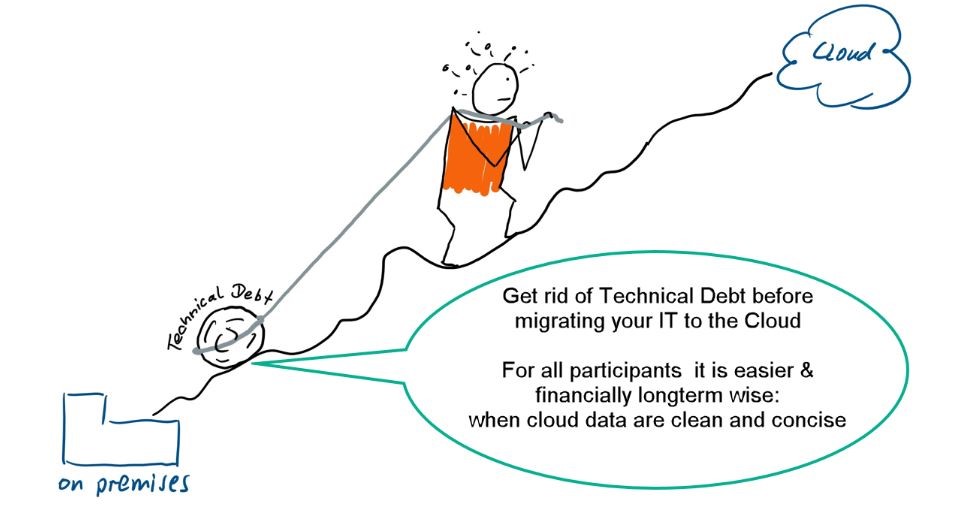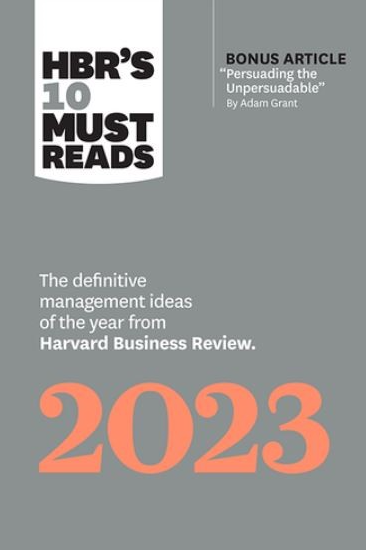TOMATO CATCH-UP - Newsletter Issue 257 – May 2023
Your monthly resource on working capital, process optimization, and issues related to the world of corporate treasurers, IT professionals, and bankers!
This newsletter is bilingual, English or German, depending on the source.
Introduction
2023 will undoubtedly be the year of artificial intelligence. People began to use AI technologies in various ways, such as impersonating famous singers or creating videos from text prompts. The AI use cases appear to have progressed to the point where significant personalities have reacted: Geoffrey Hinton, the creator of the deep learning technique that powers ChatGPT and other AI systems, announced that he is leaving Google in order to talk openly about the dangers of AI without jeopardizing the company, while tech leaders are asking for an AI moratorium. To what extent will AI impact our lives is something worth watching and even imagining as some other unthinkable AI use cases will continue to emerge.
This month’s Catch-Up includes topics such as US-Einlegerschutz-FDIC, Cloud Migration, Long-Term Debits vs Equity Capital, Digital Nomads, HBR-Leadership and more.
Remember that for any challenge related to your financial issues, you can ask Martin Schneider for a discussion that will clarify it. Contact Martin via email or call +41 44 814 2001.
- Credit Suisse bereinigt alte IIDs (BLZ) auf 5. Juni 2023
- US-Einlegerschutz FDIC und wie ist die Finanzierung?
- Die Tücken der Cloud-Migration: „Lift and Shift“ – Wenn es nur so einfach wäre!
- Änderungen der Schweizer Gemeindesteuer seit 2010
- Manager-Haftung und Steueranreize: Long-term debts taxed cheaper than Equity Capital
- Digital Nomads and Remote Work – Interactive Map by KPMG-
- Ted Lasso: 12 Leadership Lessons that Will Transform Your Workplace
- Book Tip - Harvard Business Review 10 Must Reads 2023
- Termine & Events
- From the Desk of Tomato
1. Credit Suisse bereinigt alte IIDs (BLZ) auf 5. Juni 2023
Aus dem Newsletter für Softwarepartner der Credit-Suisse: Früher als geplant entledigt sich Credit Suisse kaum mehr genutzten IIDs, besser bekannt unter Bankleitzahlen (BLZ).
Ab Valuta 5. Juni 2023 werden unter anderem über 300 Einträge alter und somit inzwischen seltener, filialspezifischer, «verketteter» IIDs/BICs der Credit Suisse AG (Schweiz) im SIC-Bankenstamm gelöscht. Im SIX-Bankenstamm 2.0* wird eine Gültigkeit zum 17. November 2023 angegeben (was so nicht mehr stimmt).
Daraus ergeben sich folgende Konsequenzen:
- Wenn Zahlungspflichtige noch alte IBANs in ihren Stammdaten haben, die davon betroffene IIDs enthalten, werden die betreffenden Zahlungen zurückgewiesen. In solchen Fällen sollte der Zahlungspflichtige in der erhaltenen Rechnung prüfen, ob er zu deren Zahlung die dort vorgegebene IBAN verwendet. Falls nicht, muss er diese in seinen Stammdaten aktualisieren. Arbeitgeber sollten bei zurückgewiesenen Salärzahlungen die IBAN bei den betroffenen Arbeitnehmern rückfragen und gegebenenfalls ebenso ihre Stammdaten anpassen.
- Falls die ERP Softwarelösung die Gültigkeit von IIDs überprüft, empfiehlt die Credit Suisse, den Bankenstamm ab 5. Juni 2023 zu aktualisieren und den Usern (zum Beispiel per Update) der Software zugänglich zu machen, um solche Fälle frühzeitig abfangen zu können.
Kommentar von Tomato AG:
- Bitte prüfen Sie Gehalt und LSV: Gerade an die Gehaltszahlung denkt man nie mehr oder auch an vor Jahren unterzeichnete LSVs (Lastschrifteinzugsverträge)
- Bevorzugt sollte in der IBAN die BLZ 4835 für die Credit Suisse (Schweiz) AG Credit Suisse (Switzerland) Ltd stehen. Die IID / BLZ (4866) und der BIC (CRESCHZHXXX) der Credit Suisse AG sind davon nicht betroffen.
- * zum SIX-Bankenstamm: Der Download in der Version 2.0 endet am 17. November 2023. Ab 18. November 2023 werden die Versionen 2.1. und 3.0 bereitgestellt.
Do you prefer English? For corporate ERP data: for 5. June onwards Credit Suisse cancels very old Bank identification numbers. Especially for salary and years ago signed direct-debits. These payment could be rejected.
2. US-Einlegerschutz FDIC und wie ist die Finanzierung?
Die Federal Deposit Insurance Corporation (FDIC; deutsch „Bundeseinlagenversicherungsgesellschaft“) ist ein durch den Glass-Steagall Act von 1933 ins Leben gerufener Einlagensicherungsfonds der Vereinigten Staaten.
Die FDIC finanziert sich durch Prämien, die Banken und Sparkassen für die Einlagensicherung zahlen.
Die FDIC deckt ab:
- Girokonten
- Negotiable Order of Withdrawal (NOW) Konten
- Sparkonten
- Geldmarkt-Einlagenkonten (MMDA)
- Termineinlagen wie z. B. Einlagenzertifikate (CDs)
- Kassenschecks, Zahlungsanweisungen und andere von einer Bank ausgestellte offizielle Papiere.
Nach den jüngsten Konkursen in den USA möchte die FDIC auch Firmenkonten auf einem höheren Niveau versichern als die derzeitige Obergrenze von USD 250.000 pro Bank, die für Einzelpersonen und Unternehmen gilt. FDIC-Chef Martin Gruenberg schlägt eine "gezielte Deckung" mit unterschiedlichen Obergrenzen für verschiedene Arten von Konten vor, wobei Geschäftskonten, über die Unternehmen Löhne und Rechnungen bezahlen, Vorrang haben und auch von der FDIC voll garantiert werden könnten.
Haben Sie als Corporate die US-Bankgebühren Ihrer US-Niederlassungen überprüft? Die Bankgebühren sind ein Mehrfaches der uns bekannten europäischen Bankgebühren. In den USA machen die FDIC-Versicherungsgebühren einen guten Teil der Gesamtkosten aus. In unseren Tomato Bankauswahl- Pflichtenheften ist dies immer als eine besondere Frage gestellt. Fragen Sie Martin Schneider
Please find here some useful information on FDIC
- Important for corporates: what if our account has a balance more than USD 250.000?
- Q&A guide
- Here you may check if your account(s) are covered by FDIC
- FDIC Support Center You can also call the FDIC at +1 877 275-3342 or +1 877 ASK-FDIC
Lesen Sie den Bericht im Handelsblatt, der uns zum Schreiben inspirierte.
3. Die Tücken der Cloud-Migration: „Lift and Shift“ – Wenn es nur so einfach wäre!
In unserem Tomato Catch-up vom Januar hatten wir das Vergnügen, Engelbert Epples Artikel über Cloud-Migration vorzustellen (englischer Text). Der Artikel war ein grosser Erfolg bei unseren über 1.500 Newsletter-Lesern. Nach Tomato’s Erstveröffentlichung wurde der Artikel in der deutschen Fachpresse mit den Empfehlungen für eine SAP2Cloud-Migration aufgenommen:
- Die „Consumption Falle“ vermeiden, kein Lock-Angebot des Cloud-Providers unterschreiben.
- Die genaue Ist-Analyse insbesondere der Abhängigkeiten minimiert das Risiko.
- Clean-up-first: Die Reduktion der Altlasten vor der Migration macht diese schlanker.
- Der flexible Betrieb während der Migration ist essenziell und beugt Service-Unterbrechungen vor.
- Dekommissionierung der Altsysteme nicht vergessen.

Lesen Sie dieses Mal den Artikel in Deutsch auf Cloud Computer Insider
4. Änderungen der Schweizer Gemeindesteuer seit 2010
Steuerland Schweiz: So hat sich die Steuerbelastung in Ihrer Gemeinde seit 2010 entwickelt
Die NZZ-Steuerkarte zeigt wie stark die Einkommen in den Schweizer Gemeinden belastet werden und wie sich die Steuern seit 2010 verändert haben. Wollen Sie prüfen, wie sich die Steuerbelastung in Ihrer Gemeinde und Nachbargemeinden entwickelt hat?
Effektive Steuerbelastung in Prozent des Bruttoerwerbseinkommens im Jahr 2022 (Summe der Belastung aus Kantons-, Gemeinde- und Bundessteuern), für verschiedene Einkommensperzentile und Haushaltstypen:
Lesen Sie mehr über die Gemeindesteuern in der NZZ (7 Artikel in der Woche sind gratis) und finden Sie eine interaktive Karte der Schweiz.

5. Manager-Haftung und Steueranreize: Long-term debts taxed cheaper than Equity Capital
Im letzten Tomato Catch-Up 2023-04 vertreten wir die Meinung, wie viele andere, dass bei einem Firmenkonkurs eigentlich Manager in Haftung gehen sollten. Welche Anreize gibt es dass das Management unnötige Firmenrisiken eingeht?
Im folgenden Artikel geht Reiner Eichenberger, Professor für Theorie der Finanz- und Wirtschaftspolitik Universität Freiburg, auf Bankenkrisen ein:
In Bankenkrisen präsentieren sich Politik und Staat als Retter. Geben sie eventuell falsche Anreize? Könnten bei einem reformierten Steuersystem Bankenkrisen vermieden werden?
Ungleiche Besteuerung von Fremd- und Eigenkapital
- Erträge von Eigenkapital werden höher besteuert als diejenigen von Fremdkapital. Die Unternehmensgewinnsteuer erfasst die Gewinne nach Entschädigung der Fremdkapitalgeber, aber vor Entschädigung der Eigenkapitalgeber.
- Ausgeschüttete Gewinne werden höher besteuert als einbehaltene.
Kommentar Martin Schneider: Zu Steueranreizthemen will ich mich noch mehr einlesen. Meine Meinungsbildung ist dürftig.
Do you prefer English?
Reiner Eichenberger, Professor of Financial and Economic Policy Theory at the University of Fribourg, believes that if we want to prevent further crises, we should reform the tax system.
In many cases, greedy managers prefer to finance their businesses with cheap debt instead of expensive equity; banks become "too big to fail" and then take excessive risks at the expense of the general public. Essentially, equity is more expensive than debt because:
- Returns on equity are taxed higher than those on debt: corporate income tax records profits after compensation to debt investors, but before compensation to equity investors. For companies, capital is more expensive if it is raised as equity capital instead of debt capital.
- Distributed profits are taxed higher than retained profits: too little of the profits are distributed. Capital does not flow to the companies that generate the greatest value with it but remains tied up in companies allowing them to grow, even if they are unproductive.
- Capital income is taxed more than labor income: this is because it is nominal income taxed, which is impacted by inflation; the nominal interest compensates the owners of capital for the loss of purchasing power on the borrowed capital due to inflation.
These mechanisms could explain the current situation in the financial market: It is profitable for managers and shareholders to over-leverage their banks and hoard profits in the banks. This makes the old banks bigger, while the new ones struggle to get equity capital. To prevent further crises, it does not help to regulate the banks more and more. Instead, the tax system needs to be reformed. Equity and debt capital and distributed and retained profits should be taxed equally and only real capital income should be taxed. Then truly safe investments will develop as if by themselves.
Details Bericht NZZ (7 articles a week are free to read)
6. Digital Nomads and Remote Work – Interactive Map by KPMG
KPMG has created an interactive overview to help navigating the immigration challenges: The Digital Nomad and Remote Work Visa Options (interactive map).
The overview, on 72 pages for 36 countries, is sorted by region and country and is being updated regularly. It covers topics like Visa category, fees, Visa duration, standard requirements as well as tax and social security implications.

Explore the KPMFG digital Nomad Remote Work Tracker Map - PDF on 72 pages 36 countries
7. Ted Lasso: 12 Leadership Lessons that Will Transform Your Workplace
In one of his recent LinkedIn articles, Marcin Klinkosz (Helping Companies Generate Results in Content Marketing), has selected 12 leadership principles from the Ted Lasso television series, which is noted for its touching portrayal of an American football coach who becomes an English Premier League soccer manager. Ted Lasso has come to represent successful, compassionate, and humble leadership.
- Believe in yourself: have faith in your own skills and think that you can overcome problems;
- Doing the right thing is never the wrong thing: Make decisions based on what is right and fair, not just what is convenient or profitable;
- All people are different people: Recognize and celebrate the diversity of people's abilities, experiences, and viewpoints;
- See good in others: Look for the potential in others and support them in realizing it;
- Courage is about being willing to try: Promote a culture of experimentation and innovation;
- Vulnerability is a strength, not a weakness: Encourage open communication and provide a safe space for team members to express their feelings and opinions;
- Tell the truth: An honest culture develops accountability and mutual respect, allowing your team to navigate issues together;
- Winning is an attitude: Motivate your team to face obstacles with a winning attitude while staying focused on the big picture;
- Optimists do more: Encourage your team to seek for opportunities in any situation;
- Stay teachable: foster a culture of curiosity and adaptability;
- Be a Goldfish: Don't dwell on your mistakes or let them define you; learn from them and move on;
- Happiness is a choice: Focus on gratitude, positivity, and self-care.
Read the whole LinkedIn article.
8. Book Tip - Harvard Business Review 10 Must Reads 2023
The book gathers all the management knowledge from last year in one spot to keep you informed of the most innovative ideas influencing business today. This book puts the most recent and crucial management conversations at your fingertips with authors like Francesca Gino and Adam Grant and companies like Pfizer and Microsoft as examples.
This collection of articles includes:
- "The Future of Flexibility at Work" by Ellen Ernst Kossek, Patricia Gettings, and Kaumudi Misra;
- "Eliminate Strategic Overload" by Felix Oberholzer-Gee;
- "Drive Innovation with Better Decision-Making" by Linda A. Hill, Emily Tedards, and Taran Swan;
- "Unconscious Bias Training that Works" by Francesca Gino and Katherine Coffman;
- "Why You Aren't Getting More from Your Marketing AI" by Eva Ascarza, Michael Ross, and Bruce G.S. Hardie;
- "Net Promoter 3.0" by Fred Reichheld, Darci Darnell, and Maureen Burns;
- "How Chinese Retailers are Reinventing the Customer Journey" by Mark J. Greeven, Katherine Xin, and George S. Yip;
- "The Circular Business Model" by Atalay Atasu, Celine Dumas, and Luk N. Van Wassenhove;
- "How to Succeed Quickly in a New Role" by Rob Cross, Greg Pryor, and David Sylvester;
- "Accounting for Climate Change" by Robert S. Kaplan and Karthik Ramanna;
- "Persuading the Unpersuadable" by Adam Grant.

Link to the book on HBR store.
9. Termine & Events
- May 18, 2023: FFECON23: The New Facets of FinCrime, London
- May 18 – 19, 2023: The 2nd ICPAC Mediterranean Finance Summit, Limassol, Cyprus
- May 23 – 24, 2023: Moral Money Summit Europe, presented by Financial Times Live, London
- May 23 – 24, 2023: Windy City Summit 2023, Chicago, Illinois - specifically designed for Treasurers, Cash Managers, Accountants, Controllers, Internal Auditors, Accounts Receivable, Accounts Payable, AVP, EVP, SVP, CEO, COO, CFOs.
- May 23 – 25, 2023: Finnovate Spring, San Francisco
- May 25 – 26, 2023: Enterprise Risk Management & Resilience, Security, Insurance & Captives, Zurich
- Jun. 6 – 8, 2023: Money 20/20, Amsterdam
- Jun. 6 – 16, 2023 am Spitzingsee, Austria; SLG Seminar 5-Tage Lehrgang Aufbau einer modernen Treasury-Abteilung
- Jun. 12 – 14, 2023: Digital Banking by American Banker, Regulation, competition, inflation – insights for a pivotal year, The Boca Raton, Florida
- Jun. 14, 2023: Private Banking & Wealth Management London Conference & Awards 2023, London
- Jun. 15, 2022 General Assembly ACTA Wien Austrian Treasury Association
- Jun. 19 – 21, 2023: Coupa Inspire EMEA 2023 in London
- Jun. 19 – 23, 2023: Fintech Week London, UK
- Jun. 20, 2023 Cash Management Campus in Köln Germany
- Aug. 14 – 15, 2023: VENCENT FINTECH SUMMIT, Bridging the future of banking and fintech, Little Rock Arkansas, USA
- Sep. 11 – 13, 2023: Finnovate Fall: The world’s premier fintech showcase, New York
- Sep. 13, 2023: Swiss Treasury Summit Jahrestreffen Schweizer Treasurer, Rotkreuz (Zug/Luzern)
- Sep. 14 – 16, 2023: CEE Treasury Forum 2023, Portoroz, Slovenia
- Sep. 25 – 29, 2023: in Wien Austria; SLG Seminar 5-Tage Lehrgang Aufbau einer modernen Treasury-Abteilung
- Sep. 27 – 29, 2023: EuroFinance International Treasury Management, the world’s largest treasury event, Barcelona
- Oct. 18 – 19, 2023: Structured Finance in Stuttgart Kongress für Unternehmensfinanzierung und Treasury
- Oct. 24 – 25, 2023: ACT Middle East Treasury Summit 2023 by the Association of Corporate Treasurers, Dubai, UAE
10. From the Desk of Tomato
On the weekend of May 6 and 7, the BBQ Swiss Championships took place in Lucerne. I feel honored that the new BBQ Swiss Champions are fellow business colleagues of mine. Moritz Graf works in the payment industry at Finastra Switzerland.
Moritz's team won with a simple Weber Kugel grill. On the menu was char (Saibling) on a pre-soaked cedar board. The second menu was Pulled Beef, braised overnight for 18 hours and monitored every two hours by one of the team members.
The winning team Best-BBQ looks forward to training and catering you as well.
Enjoy Martin and Tomato Team
Char with beetroot tartare in a beetroot basket grilled on wet cedar board. The cedar board should not burn within the char grilling time of 10 minutes:

Pulled beef with corn flatbread and tortilla topping. As a sauce: tomato relish and guacamole:

